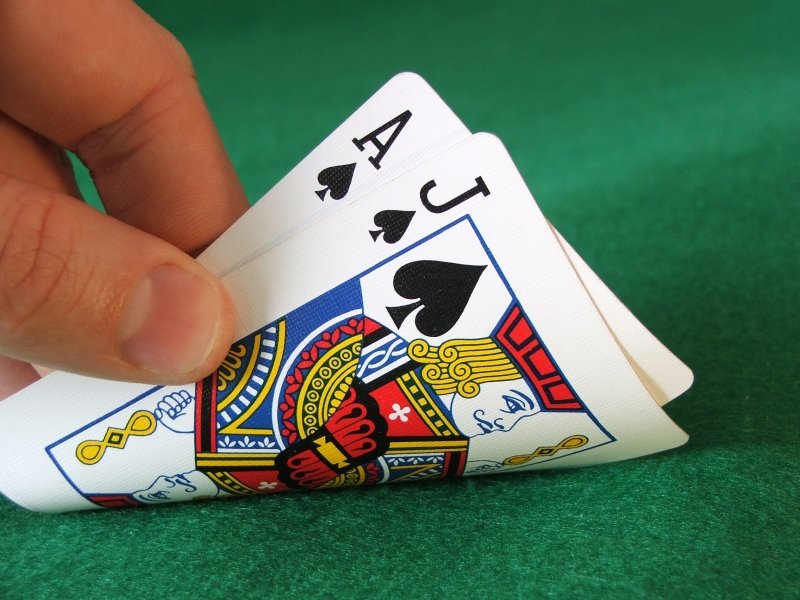
About a decade ago, I was enthralled with the tale of an MIT Blackjack team that beat the Casino using nothing more than sheer mind power and math. I had even seen it in my own home with a mathmatically gifted father that liked to sneak off to the casino once a year and usually brought home a nice little prize reaped from sitting at the Blackjack table. I was lucky enough at the time to have youthful zeal, a good source of discretionary income and a lot of extra time on my hands. I embarked on a journey to learn to card count and beat the casino at Blackjack.
I'm not going to go into all the nitty gritty, Blackjack card counting 101 details. Those have been covered and written about countless times by far greater minds than myself and so I would be doing you a disservice by trying to go over all the basics myself. For this article I'm going to assume you know Blackjack basic strategy and have at least an understanding of how a high-low card counting system works. If these are foreign concepts to you I suggest you get started with some of these links:
(I'm not recommending any of their paid services just poiting them out for their free information)
http://www.blackjackinstitute.com/
https://www.blackjackapprenticeship.com/
https://www.blackjackinfo.com
http://www.blackjackclassroom.com/
What I'm going to share are some of the practical tricks I've learned that help you execute consistent basic strategy and high-low card counting in a busy casino atmosphere. I am not a professional gambler and I did not get rich playing Blackjack. What I did successfully do was manage to stay profitable and make about $10,000 on low limit tables over a year while learning to card count. Why aren't I doing this full time? Well maybe I just don't have the stones to make the big enough bets it would take to get rich card counting, I found the entire experience became quite grueling and without a team to work with not all that rewarding.
What it came down to was too many nights driving an hour and a bit to get to a casino, grinding away on the table for hours and never once have the deck go hot. Have that happen every night for a couple weeks and you're not having that much fun. Even if I just stood behind someone else watching and not risking my own money the task can become quite boring. You start to recognize the same people hanging out there day in and day out. It became like a low paying job. Now I mainly use these tricks to impress colleagues at conferences in Vegas. So here is what I've learned:
Never be afraid of looking like you don't know what you are doing
This tip works two ways. If you really are new to the game and are trying to still memorize all the standard basic stragety plays tell anyone and everyone you are a newbie. All the veterans and even the dealer will be more than happy to slow the game down for you and tell you what is considered to be the proper move to make. The moves you make at a Blackjack table directly effect the outcome for the other players and you are all playing together to beat the dealer. Almost all Blackjack players would prefer you ask them what to do rather than impulsively make the wrong move.
On the flip side if you are a proficient card counter you might feign a lack of knowledge in order to slow the game down and make it easier for you to count and also bring less suspicion to yourself in regards to being a card counter.
Since electronic devices are universally banned at Blackjack tables I suggest always brining a Blackjack basic strategy cheatsheet card printout to you at the table. Often casinos will even sell laminated versions of these cards in their gift shops. You are allowed to bring a basic stragegy chart to the table and use it openly everywhere I have gambled.
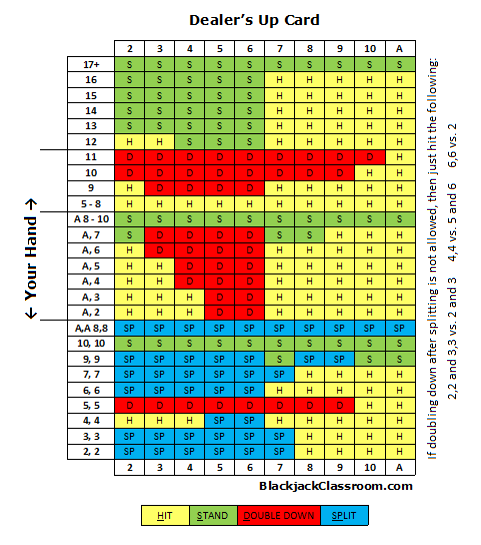
Bring a stack of $1 chips
Optimely you want 32 $1 chips but you can most likely get away with as little as 20 for this trick to work. You are going to use these $1 chips to side track aces. When a new shoe is being dealt make sure to have all your $1 chips together. You can play with them and work on looking cool shuffling chips but make sure to just toss one to a new little pile every time an ace is dealt. This allows you to gain a little more insight than just what the high-low card disparity of the deck is at any given time. You can now also track the availability of the highly coveted aces in the shoe without having to further tax your concentration and memorization abilities.
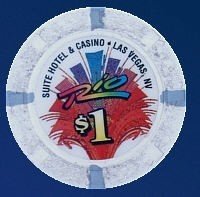
I have even done this openly with the rest of the table helping remind me to increment my ace count. When you are acting like a rookie and are sitting on a low-limit table no one seems to have an issue. I cannot say how welcome this trick would be at a high limit table.
Always pair high and low cards first
This crucial trick has been the game changer for me when it comes to being able to count cards and also not look like you are counting cards. Intently watching every single card that comes out of the shoe and immediately applying it's value to the running count is just too taxing to pull off and can completely fall off the rails if you have to turn around and tip a waitress.
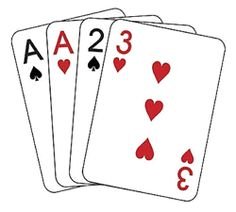
Always pair a certain number of high cards with the equal number of low cards on the table as a whole while it is being dealt. Allow the cards to nullify each other and only increment your running count according to the disparity of high to low. Counting the table as whole is truely liberating compared focusing on each card the second it comes out. It will free you up to be more social and quite frankly enjoy yourself a little more. Once you've practiced this skill enough it will become second nature. I literally cannot stand near a game of Blackjack or almost any card game for that matter and not automatically pair up high and low cards to quickly calculate a table worth of cards impact on a running count.
Have a betting strategy and bring a bankroll
I'm not going to tell you which betting strategy is the best and is full-proof. Do some research on betting strategies and pick which one works best according to your appetite for risk. Whether it's aggressive or conservative strategy, just make sure you have one.

Keep a bankroll, by this I mean bring enough money to the table to give yourself a chance. Don't show up to a $10 table with $20. It's going to piss people off if you are constantly having to leave and bring back more money or even just pulling it out of your pocket every other hand. Bring enough to last at least 20 hands. You can't count cards properly if you are alays fishing in your pocket for more cash.
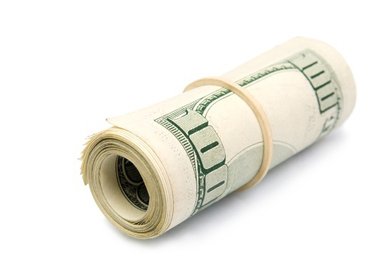
I personally use a regressive betting strategy. I play to reduce my losses at all times while still taking advantage of streaks and oppourtune moments in the game where the odds are in my favour. I will typically always start with one betting unit above the table minimum. Anytime I lose a hand I always reset to this amount. If I were to win a hand for the first time I will reduce my next bet to the table minimum. If I continue on a winning streak I will increment my bet by one betting unit, each time I win and pull back the rest. This strategy helps protect me in the event of a series of win-lose-win-lose hands come up while still being able to take advantages of winning streaks. I'll show you an example:
The table minimum is $5 and my bankroll is $100 for simiplicity's sake.
Bet 1 - Wager $10 - Win - Bankroll = $110
Bet 2 - Wager $5 - Lose - Bankroll = $105
Bet 3 - Wager $10 - Win - Bankroll = $115
Bet 4 - Wager $5 - Lose - Bankroll = $110
So we just went through a win-lose-win-lose series but we are $10 up or two betting units up, depending on how you want to think about it. Either way we can do this all day long and come out on top.
Bet 1 - Wager $10 - Win - Bankroll = $110
Bet 2 - Wager $5 - Win - Bankroll = $115
Bet 3 - Wager $10 - Win - Bankroll = $125
Bet 4 - Wager $15 - Win - Bankroll = $140
Bet 5 - Wager $20 - Win - Bankroll = $160
Well isn't this a lovely situation to be in? You've protected yourself grinding out wins and losses all night and finally which got you here. Now you can conservatively keep increasing the your bet by one betting unit until you hit the streak ending loss. While you didn't get quite as much as some other more aggressive strategies for riding a streak you'll manage to stick around a lot longer.
Don't put more money on the table when the dealer has a 10
This is where I will often play a bit more conservatively than basic strategy would tell you. The book will tell you to double down in a couple situations where the dealer is showing a 9 or 10 and you have a 10 or 11. More often than not depending on the count I will opt out of putting more money on the table when the dealer is showing a power card. Some would see this as a wasted oppoutunity but I'd rather wait for a blazing hot deck to show up than double down against 9 and 10s. Only take this advice if you are seeking ways to play extremely conservative.
Put more money on the table when the dealer is weak and you can't lose
This will be dependant on what your running count is. There can be some great oppourtunities to double down against a weak dealer card like a 5 or 6 when it's impossible for you to go bust. If the deck is hot and the dealer has a 6 the odds are they'll flip over that card and reveal a 10 followed by another 10 to go bust. You can bet on this oppourtunity by doubling down on extremely low hands that you wouldn't normally double down on. Remember you are betting alongside the odds that the dealer will go bust you are not betting that you will be closer to 21.
Sometimes it's okay to be an asshole
When you are starting out card counting, you need a lot of concentration until things become second nature. As if the flashing lights and beeping slot machines weren't enough to distract you, you've now got a chatty drunk Texan asking you about your life story and damnit you just lost the count!

This is a casino, it's not all fun and games, people have their hard earned money on the line and some people don't like to be distracted. It is okay to tell someone you aren't interested in chatting with them while trying to concentrate on a game. That's not to say they might think you are a bit of prick or more likely in a bad mood after losing everything but generally people will respect your request to not be bothered with small chat.
Splitting 10s is a great way to make room
There are some very interesting opportunities when you are card counting. It may be possible for the deck to be so damn hot and the dealer's card so damn weak that splitting a pair of 10s could make sense. It will also have the added effect of clearing out some room on the table your on and lower the competition. Be prepared for groaning and complaining from some of the old veteran players as they grab their chips and run away from you. I always have a secret laugh inside when I pull this stunt because I know they just walked away from a hot deck.
Let the pitboss take care of it
Alright this last tip isn't really about making money in the game of Blackjack it's more about saving yourself some time. I always have my play tracked yet can't ever be bothered to carry their cards in my wallet regularily. A nifty timesaving trick I've learned for getting registered with the casino or just getting a new card at a casino you've been at before don't bother standing in line at their customer service desk. Just give the pitboss your photo ID when joining the table and ask them to have a new card printed for you.

This will have the bonus effect of having the pitboss remember your face a little bit more. After you've gambled at least an hour at the table and are ready to go always ask them for something free. Parking and a meal can almost always be squeezed out of a pitboss. I considered these to be my consolation prizes on the many nights where I drove and hour and played for another 4 only to break even. That free parking and buffet valued at $25 to the non-gambling masses is my moral victory!
Gamble responsibly
For fucks sake don't ever gamble what you aren't willing to lose right then and there forever.
